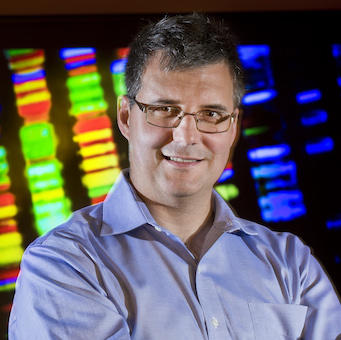Director's Message to UMIACS
In reviewing the current issue of UMIACS Interface, I can’t help but notice a prevailing theme: the breadth and depth of research and scholarship by women associated with our institute.
The newsletter highlights the QuICS Hartree Fellows program, a project by visiting research scientist Vibha Sazawal, and an award given to Min Wu—all recognizing significant contributions to science, education and outreach by female members of our community.
While this should come as no surprise—UMIACS as a whole has always been committed to forward-looking research and innovation—it certainly underscores the strength of women focused on computing and related disciplines.
How can we improve in this area?
As director, I have made a strong commitment to—and will continue to foster—a greater representation of women in UMIACS, particularly among the ranks of new faculty and research scientists hired to the university. This is a topic that is being addressed on a national level, not just at Maryland. Current figures show that women make up about 17 percent of computer science faculty in the U.S. and Canada. Counting our affiliate and visiting faculty, 23 percent of UMIACS faculty are women.
I’ll identify some of the activities we’re involved with to try and improve the climate, and outcomes, for women computer scientists.
UMIACS, in equal partnership with the Department of Computer Science and the College of Computer, Mathematical, and Natural Sciences, supports the Maryland Center for Women in Computing. We’ve provided sponsorship funding to workshops and hackathons that include Technica, the Diversity in Computing Summit, and the Widening Natural Language Processing initiative.
In our new UMD Center for Machine Learning, several faculty have established a Rising Stars in Machine Learning program, intended to bring up-and-coming female researchers involved in machine learning to campus to interact with faculty and students.
I would be remiss if I did not take time to recognize the powerhouse of talent we already have in UMIACS. The examples below paint a vivid portrait of the impact our women faculty have made in the scientific community at large:
• Rita Colwell, a leading expert on battling cholera on a global scale, served as director of the National Science Foundation from 1998 to 2004, the first woman to do so.
• In 2020, Leila De Floriani, an expert in geometric modeling, will serve as president of the IEEE Computing Society.
• The groundbreaking work by Bonnie Dorr and Amy Weinberg that combined powerful computational tools with talented linguists led to the establishment of our Computational Linguistics and Information Processing Lab.
• Cornelia Fermüller (vision and robotics), Dianne O’Leary (scientific computing), Catherine Plaisant (human-computer interaction), and Louiqa Raschid (database systems) are also longstanding UMIACS members who have been widely cited for their academic work.
• And Ming Lin, the first woman chair of the university's computer science department, was just named a Distinguished University Professor, the highest academic honor given by the campus.
While these examples are impressive, I am committed to providing the necessary resources—both human and financial—that will allow our newer female faculty members to excel. Whether those resources are in the form of workshops, a structured mentoring program, seed funding for research, or another mechanism, is yet to be determined. I welcome your feedback on the most effective ways in which we can provide such support.
A final thought: While I've talked mostly about our female faculty, the institute remains strong in its commitment to diversity in computing on a broader scale. We are active at the departmental and university levels in increasing participation in computing by people of diverse backgrounds, genders, identities, upbringing, and scientific knowledge.
Please let me know if you would like to assist in these efforts. Together, we can continue to advance new knowledge and make new discoveries that will have a positive impact on science and society.
Mihai Pop, UMIACS Director

